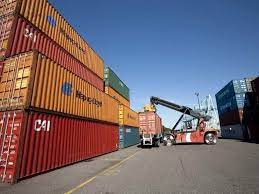Stronger intra-regional trade, strategic investments and bold economic reforms are crucial to unlocking the vast potential of the African Continental Free Trade Area (AfCFTA), the United Nations Conference on Trade and Development (UNCTAD) said late Monday.
The call for action came during the launch of the 2024 Economic Development in Africa Report, jointly presented by UNCTAD secretary general Rebeca Grynspan and Côte d’Ivoire’s Minister of Trade, Industry and SME Promotion Souleymane Diarrassouba.
The report highlights how bold policy reforms and strategic investments can strengthen Africa’s resilience to global shocks and create new economic opportunities.
“Africa faces serious challenges – from volatile global markets and high debt costs to infrastructure gaps. But these challenges are also a chance to reshape the continent’s economic future,” Grynspan said.
She added that Africa can emerge stronger, more resilient and more competitive, “with bold reforms, investment, and full implementation of the AfCFTA.”
The report notes that Africa’s reliance on commodity exports, high trade costs and weak infrastructure make it highly vulnerable to external shocks.
It identifies several key areas for action to address these vulnerabilities.
Noting that close to half of African countries rely on oil, gas or minerals for at least 60 percent of their export earnings – a development that exposes them to price fluctuations – the report said diversification of exports and boosting intra-African trade will create more stable revenue streams.
It also noted huge infrastructure gaps in transport, energy, and information and communications technology, which make trade 50 percent more expensive than the global average, limiting competitiveness, especially for landlocked nations.
To address the infrastructure challenges, the report called for massive investment in logistics and digital connectivity to unlocking growth.
According to the report, small and medium-sized enterprises (SMEs) provide 80 percent of employment across Africa but struggle with weak infrastructure, currency volatility, and limited financial access.
“Expanding credit, risk-management tools, and regional supply chains will boost their resilience.”
Intra-African trade remains one of the continent’s greatest opportunities, but it currently accounts for just 16 percent of total exports, with most trade still directed outside the continent, UNCTAD notes.
“The full implementation of the AfCFTA could create a $3.4 trillion market, but unlocking this potential requires investing in infrastructure by expanding transport, energy and ICT networks, streamlining trade policies and processes such as customs and supporting industrialisation through, for example, incentive tax breaks and affordable interest loans that can boost manufacturing and regional production,” the report noted.
The 2024 Economic Development in Africa Report outlines key strategies to turn challenges into opportunities, including providing tax breaks, lower capital costs and affordable interest loans to firms investing in manufacturing and production for regional markets.
Another game-changing strategy will involve establishing regional funds and early-warning systems for trade-related risks and pooling public and private resources for contingency planning and insurance.
The report also called for the creation of trade finance mechanisms to support businesses affected by global shocks, helping them pivot to regional markets and maintain jobs.
JN/APA


